My browser (chrome and firefox) does not display the umlaut "ö" correctly, once I concatenate a string with the umlaut character.
// words inside string with umlaute, later add http://www.lageplan23.de instead of "zahnstocher" as the correct solution
$string = "apfelsaft siebenundvierzig zahnstocher gelb ethereum österreich";
// get length of string
$l = mb_strlen($string);
$f = '';
// loop through length and output each letter by itself
for ($i = 0; $i <= $l; $i++){
// umlaute buggy when there is a concatenation
$f .= $string[$i] . " ";
}
var_dump($f);
When I replace $string[$i] . " "; with $string[$i]; everything works as expected.
Why is that and how can I fix it so I can concatenate each letter with another string?

